Type 1 Diabetes Clinical Research Network
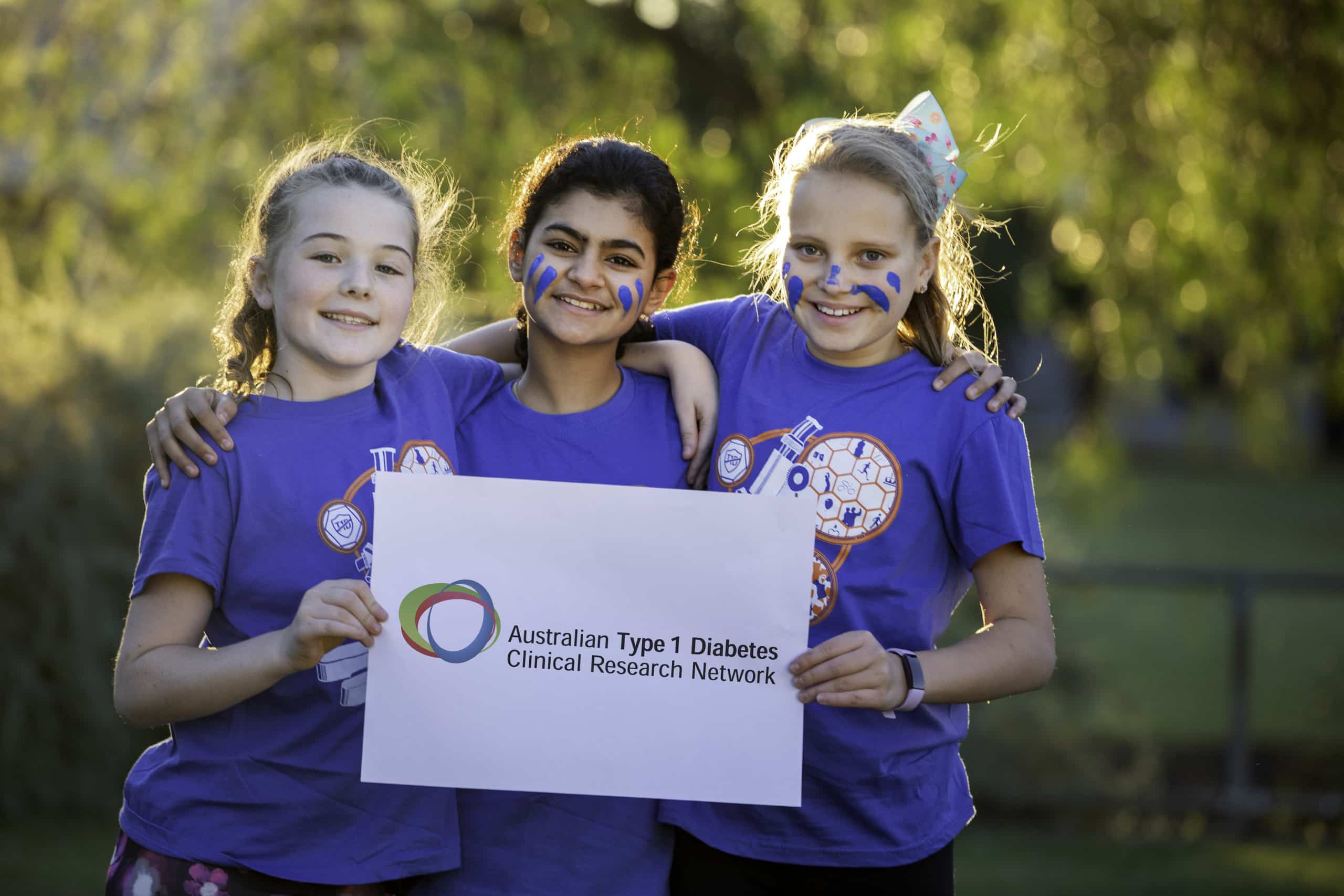
The Type 1 Diabetes Clinical Research Network
The Type 1 Diabetes Clinical Research Network (T1DCRN) is a highly successful and impactful research network and the main vehicle for type 1 diabetes (T1D) research funding in Australia.
With the T1D community and its core, it brings together world-class researchers, increases the volume and scope of clinical research and trials in Australia, supports research translation, and links the entire T1D research landscape.
In partnership with government and the research community, JDRF Australia developed the T1DCRN over 10 years ago, with the goal of moving us towards a world without T1D as quickly as possible. Its progress has put Australia on the map as a leader in T1D research and driven countless breakthroughs in T1D research.
This has been made possible thanks to substantial and ongoing government investment over the past decade.
A snapshot of the impact that the T1DCRN has achieved since its inception can be seen below.
T1DCRN research impact: a decade in numbers
$65m
Invested in Australian research
83
Projects funded
450
Researchers supported
10,000
People participating in clinical trials or studies
2x
Double the number of clinical trials & studies
22
Host institutions across Australia
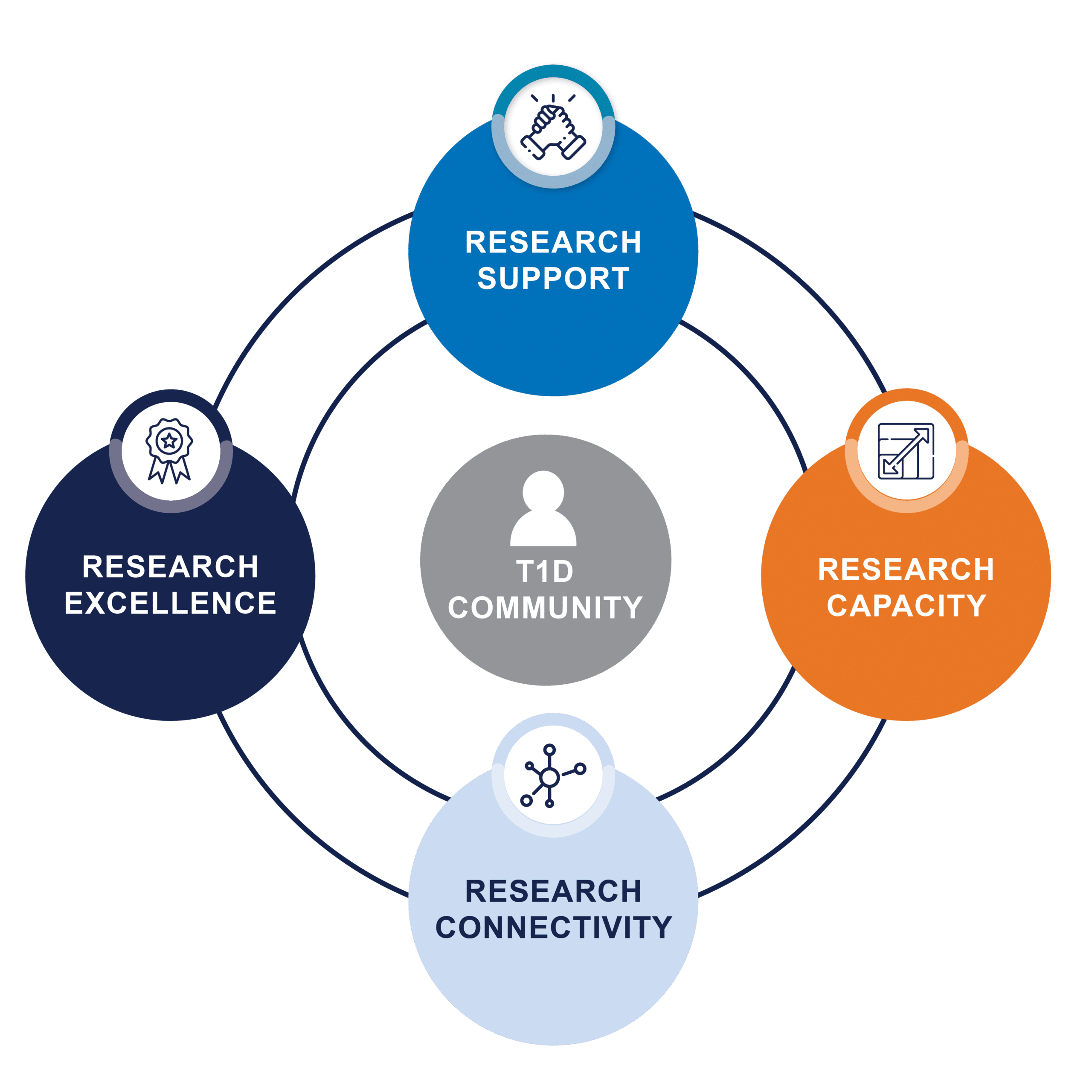
The objectives of the T1DCRN are to increase:
1. Research support
Increase the amount of Australian T1D research in order to drive scientific breakthroughs.
2. Research capacity
Increase the volume and scope of clinical research and establish Australia as a global leader in the field.
3. Research connectivity
Establish productive collaborations between researchers, institutions, the T1D community, industry, and international bodies, accelerating scientific breakthroughs.
4. Research excellence
Attract, support, and retain the best and brightest T1D researchers.
10 years: 10 stories of impact
Every Australian child with T1D detected early
The Type 1 Diabetes National Screening Pilot is aiming to make routine childhood screening for T1D available nationally, to ensure no child is diagnosed late at the point of critical illness.

Identifying what causes T1D
The Environmental Determinants of Islet Autoimmunity (ENDIA) Study is a world-first study investigating what in the environment interacts with our genes to trigger the development of T1D, from as early as pregnancy.

Making insulin once again
Islet transplantations replace damaged insulin-producing beta cells, restoring the ability to make insulin in people with T1D. The T1DCRN has funded some of Australia's best transplantation scientists working to make the procedure more widely available.
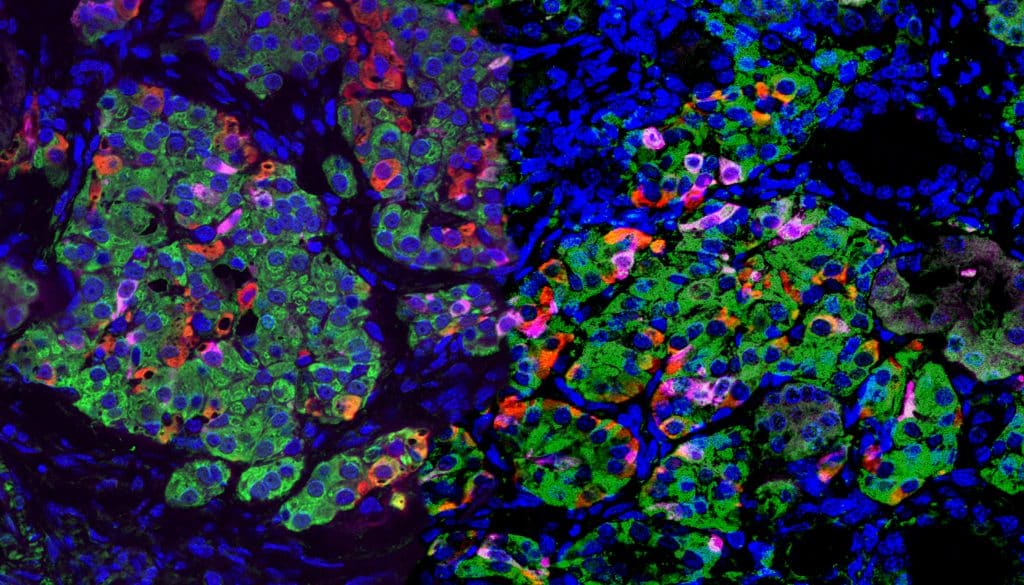
One of the world's first T1D gene therapy trials
A new gene therapy clinical trial is aiming to prevent the immune system attack of transplanted islets, allowing them to survive for longer. If successful, the trial would make islet transplantation available to more people, in turn enabling them to produce their own insulin again.

Bringing cutting-edge technologies to T1D management
The T1DCRN has funded various projects proving the clinical benefits of management technologies, including insulin pumps and continuous glucose monitors (CGMs). This evidence base was crucial for policy changes, eventually allowing all Australians diagnosed with T1D to access subsidised CGMs.

Bringing new T1D clinical trial to Australia
The Australasian Type 1 Diabetes Immunotherapy Collaborative (ATIC) is a network established through T1DCRN funding that provides the framework and infrastructure necessary to bring groundbreaking T1D clinical trials to Australia.

Supressing the destruction of beta cells
The Baricitinib in New-Onset Type 1 Diabetes (BANDIT) trial was a world-leading breakthrough in T1D, which showed that baricitinib could supress the progression of T1D in newly diagnosed people.

Developing future T1D research leaders
Investing in early and mid career T1D researchers, to equip them with the skills and experience required for effective leadership, ensuring that breakthroughs occur now and into the future.
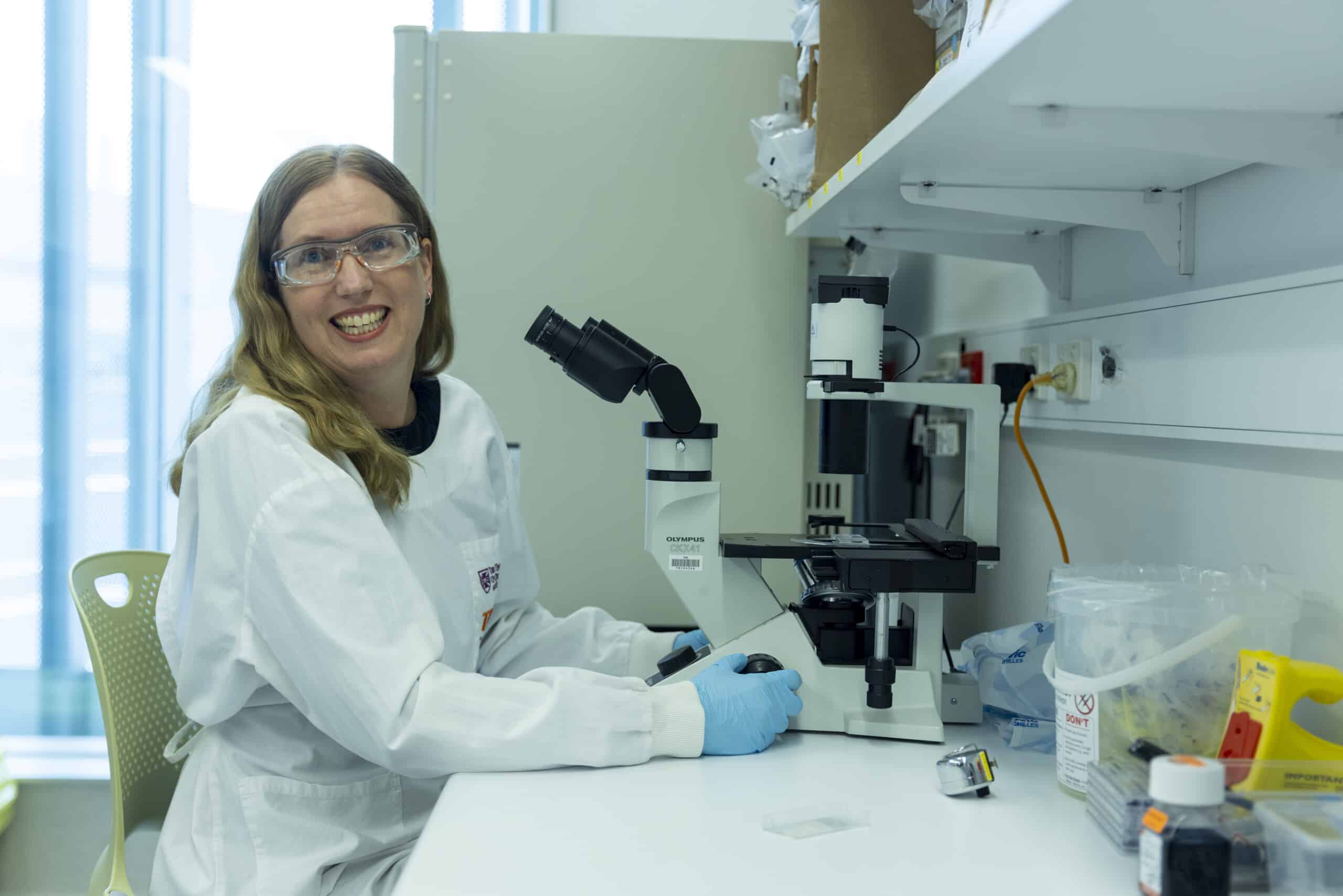
Transforming T1D research into real-world solutions
The T1DCRN plays a crucial role in transforming early research discoveries into tangible therapies and treatments for the T1D community.

Protecting against eye damage in T1D
A T1DCRN-funded study is examining whether a therapy widely used by the type 2 diabetes community to prevent diabetic retinopathy, which can lead to blindness, is also effective in T1D.
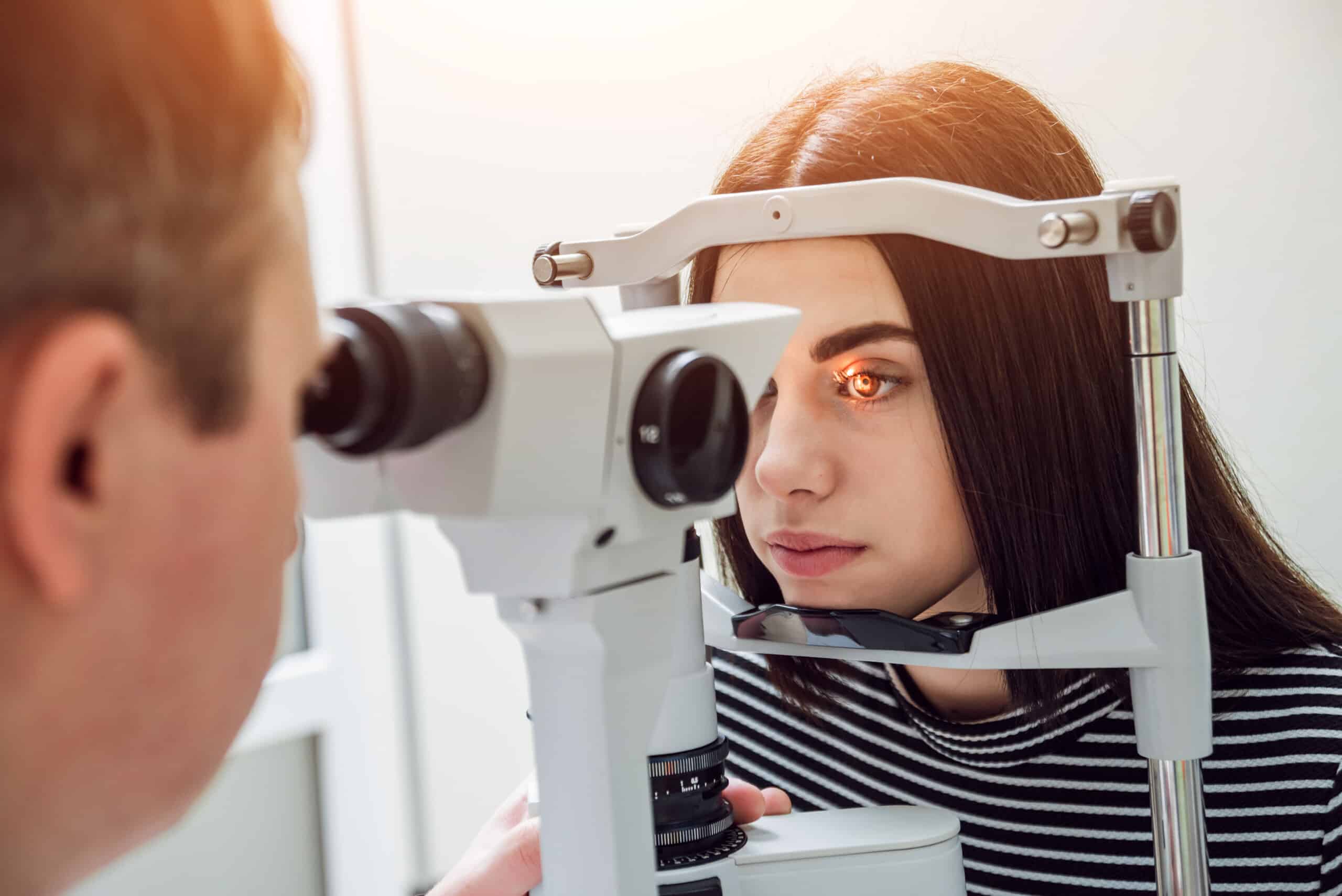
Stay up to date on T1D research news
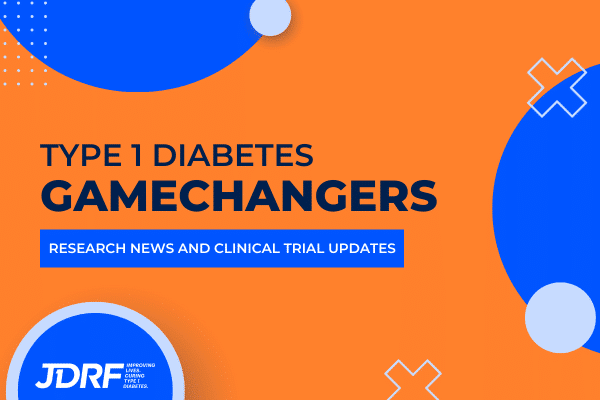
Sign up here.
Get the latest research updates straight to your inbox and be the first to hear about new clinical trials.


